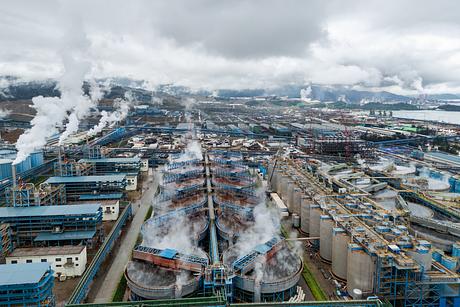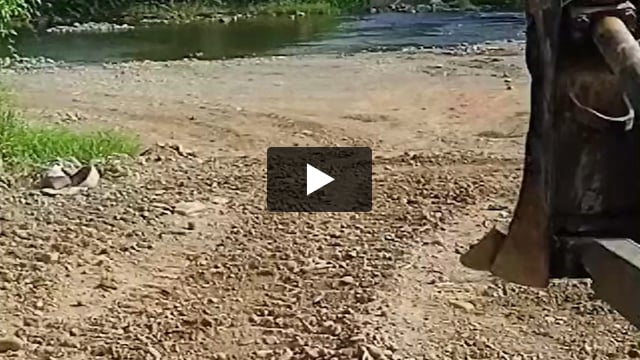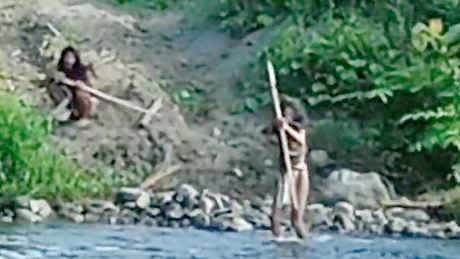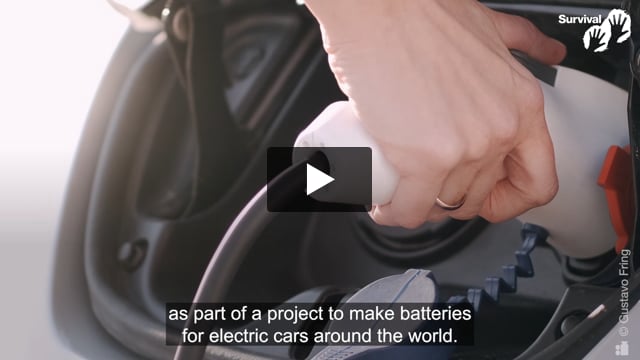Indonesia: Presidential visit for new EV battery factory is “a disaster for uncontacted Indigenous people”
June 24, 2025
 © Garry Lotulung
© Garry LotulungThis week’s expected announcement that Indonesia plans a new $6-7bn EV battery factory on Halmahera Island spells disaster for the island’s uncontacted Indigenous people, experts warned today.
President Prabowo Subianto is reportedly planning to travel to Halmahera this week to inaugurate construction. The government calls the planned facility, “the world’s first upstream-downstream car battery ecosystem” — meaning the entire process from mining and refining nickel to battery manufacturing will happen on Halmahera.
But the project is a catastrophe for the estimated 500 uncontacted Hongana Manyawa people. Their ancestral forests are already being destroyed by nickel mining. The planned expansion will almost certainly lead to the complete destruction of their rainforest — and of them.
CATL, the world's largest EV battery maker, is set to be a joint venture partner in the new battery factory. It supplies Volkswagen, Tesla, Ford, Stellantis, BMW, and Mercedes-Benz, among others.
The news comes just two weeks after the Indonesian president cancelled four nickel concessions on the neighboring islands of Raja Ampat over concerns that mining would harm its thriving tourist industry.
Survival International Director Caroline Pearce said today: “This announcement is a death sentence for the uncontacted Hongana Manyawa. Nickel mining concessions already cover 40% of their territory. Their home – the land that is theirs under international law – is being brazenly seized and destroyed to cater to global industries and global consumption.”
Halmahera – the only home of uncontacted Hongana Manyawa people – is already the site of the world’s biggest nickel mine, which has razed vast areas of the island’s rainforest. The mine’s operator, French company Eramet, has known of the severe risks to the 500 uncontacted Indigenous people for more than 10 years, but continues to deny their presence.
“These plans are turbo-charging the destruction of their rainforest home,” Pearce added. “Going ahead means devastating the Hongana Manyawa’s homes, livelihood, food, shelter, medicines and their very identity – and it will kill Hongana Manyawa families. They have lived on and cared for this island and its forests for countless generations - and now they are being destroyed in the name of a supposedly sustainable way to combat climate change.”
The most likely site for the new battery factory in Halmahera is less than 12 miles away from where two uncontacted Hongana Manyawa men were filmed in 2023 aiming arrows against bulldozers on their territory.
“The Indonesian government has shown it’s prepared to cancel nickel mining to save tourism; it must now also do so to stop an appalling human rights atrocity,” Pearce said. “By acting now and establishing a no-go zone for mining on the territory of the uncontacted Hongana Manyawa people, the government can prevent their annihilation.”
Notes for Editors:
- Almost half of the uncontacted Hongana Manyawa's territory already overlaps with mining concessions. (See p24 of Survival’s ‘Driven to the Edge’ report)
- Tesla says it is exploring “the need for the establishment of a no-go zone for mining to protect indigenous and human rights, particularly those of uncontacted communities”, in Indonesia.
- Leaked documents from Weda Bay Nickel (Eramet's mine), obtained by Survival, reveal the company knows its own mining activities could “affect the existence” of the Hongana Manyawa but it dismisses this as “hypothetical” and “unimportant”. (For citation or more information, contact Survival.)





